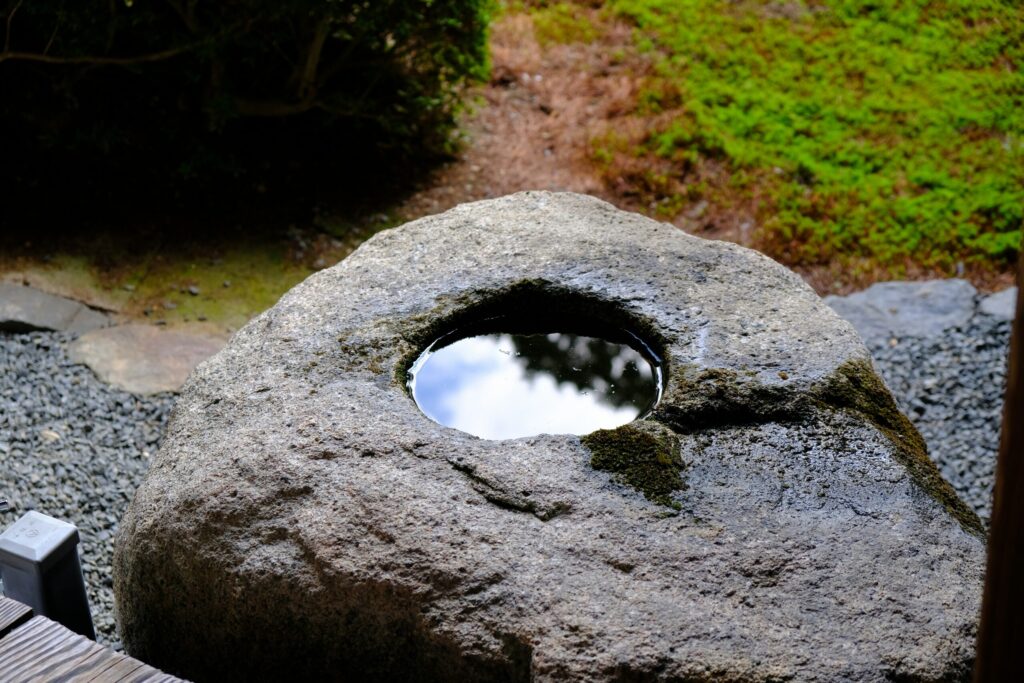Hello everyone,This is syuya.
This article introduces Japanese proverbs that inspire positive feelings.
How many Japanese proverbs do you know?
In Japanese culture, many proverbs have been passed down for centuries.They often contain life lessons, social wisdom, and moral teachings for future generations.
Among them, there are countless proverbs with positive meanings.
These sayings give encouragement when you feel down or lose hope.They remind us of resilience, patience, and the brighter side of life.
In this article, you will find uplifting Japanese proverbs, their pronunciation in Romaji, and their meanings in English.
By learning them, you can discover the wisdom of Japan and gain words that bring comfort and motivation.
雨降って地固まる(ame futte ji katamaru)

雨降って地固まる
(ame futte ji katamaru)
Meaning:the difficult situation has passed and the foundation has been strengthened, bringing about a favorable situation.
The Japanese proverb “Ame futte ji katamaru” delivers a lesson about strength through hardship.Its literal translation is “After the rain, the ground hardens.”
It means that problems, conflicts, or struggles can make people or situations stronger.
In daily life, this phrase encourages patience during difficult moments.
It shows that challenges often bring growth and stability once they are overcome.
In Japanese culture, the proverb reflects the idea of resilience and renewal.
People use it when they want to comfort someone after a fight, mistake, or setback.
It suggests that hardship is not the end but the beginning of strength.
The saying has a positive and practical tone that fits many situations.
English speakers often compare it to “What doesn’t kill you makes you stronger.”
Both express the idea that pain and struggle can create a stronger foundation for the future.
Learners of Japanese language value “Ame futte ji katamaru” for its poetic image and cultural depth.
It is widely used in conversation, writing, and motivational contexts.
By studying this proverb, readers understand how Japanese wisdom views hardship as a path to stability.
捨てる神あらば拾う神あり(Suteru kami araba hirou kami ari)

捨てる神あらば拾う神あり
(Suteru kami araba hirou kami ari)
Meaning:When one support disappears, another will appear.It shows that if someone abandons you, another person will help you.The proverb conveys hope and encouragement.
The Japanese proverb “Suteru kami araba hirou kami ari” carries a strong message of hope.
It means that even if someone turns away from you, another person will extend a hand.
The phrase reminds us that life offers both rejection and support.
No situation stays completely negative forever.
In Japanese culture, this proverb encourages resilience and patience.
It reflects the belief that fate always balances loss with new opportunities.
People use it to inspire others during difficult times.
It suggests that when one path closes, another will open.
This saying connects to universal wisdom shared in many cultures.
English speakers often compare it to “When one door closes, another opens.”
Students of Japanese language value this proverb for its cultural insight.
Writers and teachers also use it to explain the positive spirit in Japan.
By learning “Suteru kami araba hirou kami ari,” readers understand a key part of Japanese wisdom.
雨垂れ石を穿つ(Amadare ishi o ugatsu)

雨垂れ石を穿つ
(Amadare ishi o ugatsu)
Meaning:Drops of rain can pierce stone.
It means that steady effort and patience can overcome great difficulties.
The proverb teaches the power of perseverance and consistency.
The Japanese proverb “Amadare ishi o ugatsu” carries a strong lesson about persistence.
Its literal meaning is “Dripping rain wears through stone.”
It teaches that even a small action, if repeated many times, can achieve remarkable results.
In daily life, this saying reminds us that patience and steady effort bring success.
It reflects the Japanese cultural value of endurance and long-term dedication.
People use it to encourage others not to give up when progress seems slow.
The proverb suggests that true strength lies in consistency rather than speed.
It is often compared to the English phrase “Constant dripping wears away the stone.”
Both sayings highlight how persistence can overcome resistance.
Learners of Japanese find this proverb especially meaningful because it connects natural imagery with life lessons.
By studying “Amadare ishi o ugatsu,” readers discover the importance of perseverance in Japanese wisdom.
失敗は成功の基(Shippai wa seikō no moto)

失敗は成功の基
(Shippai wa seikō no moto)
Meaning:Failure is the source of success.
It means that mistakes and setbacks become lessons that lead to achievement.
The proverb teaches that failure is not the end but the beginning of growth.
The Japanese proverb “Shippai wa seikō no moto” offers a timeless lesson about growth.
Its direct meaning is “Failure is the foundation of success.”
It teaches that mistakes and setbacks provide the experience needed to achieve future goals.
In daily life, this proverb reminds us not to fear failure but to learn from it.
It reflects the Japanese cultural view that effort and persistence are more important than immediate results.
People use it to encourage students, workers, and anyone facing challenges.
It suggests that every error carries the seed of improvement.
The saying is often compared to the English phrase “Failure is the mother of success.”
Both emphasize that success cannot exist without failure.
This Japanese proverb is valuable for anyone seeking motivation and resilience.
Learners of Japanese language also appreciate it as a simple yet powerful expression.
By studying “Shippai wa seikō no moto,” readers gain insight into the positive approach toward failure in Japanese wisdom.
七転び八起き(Nanakorobi yaoki)

七転び八起き
(Nanakorobi yaoki)
Meaning:Fall seven times and stand up eight.
It means that no matter how many times you fail, you should rise again.
The proverb teaches resilience, perseverance, and the power of never giving up.
The Japanese proverb “Nanakorobi yaoki” is one of the most famous sayings about perseverance.
Its literal translation is “Fall seven times and get up eight.”
It means that even after repeated failures, you should always rise again.
This proverb highlights the importance of resilience and determination in life.
In Japanese culture, it reflects the value of patience and inner strength.
People often use it to encourage someone facing challenges or setbacks.
It teaches that true success belongs to those who never give up.
The phrase is often compared to the English expression “Fall down seven times, stand up eight.”
Both carry the universal lesson that persistence is stronger than failure.
This proverb inspires students, athletes, and professionals alike.
Learners of Japanese also appreciate “Nanakorobi yaoki” as a simple yet powerful phrase full of cultural meaning.
By studying this proverb, readers discover how Japanese wisdom views failure as a step toward strength and ultimate success.
好いたことはせぬが損(Suita koto wa senu ga son)

好いたことはせぬが損
(Suita koto wa senu ga son)
Meaning:Not doing what you like is a loss. This Japanese proverb teaches that avoiding your passions creates regret. It encourages people to pursue activities that bring them genuine happiness.
The Japanese proverb “Suita koto wa senu ga son” offers essential wisdom about living authentically and pursuing personal joy.
Its literal translation is “not doing what you like is a loss.”
This powerful saying teaches that people harm themselves when they avoid activities that bring them happiness.
The proverb highlights the importance of following your heart and honoring your true interests in life.
In Japanese culture, this saying reflects the balance between duty and personal fulfillment.
Many people suppress their genuine desires due to fear or social expectations.
This Japanese proverb reminds us that such avoidance creates spiritual and emotional loss.
People often use it to encourage someone hesitating to pursue their dreams or passions.
The phrase teaches that authentic living requires courage to embrace what truly matters to you.
It shows that the greatest regrets come from opportunities we never take rather than risks we do take.
This proverb is often compared to the English expression “life is too short” or “you only live once.”
Both carry the universal lesson that denying your passions diminishes your life experience.
This Japanese proverb inspires students choosing career paths, artists pursuing creativity, and anyone facing important life decisions.
Learners of Japanese culture also appreciate “Suita koto wa senu ga son” as a meaningful phrase that reveals Japanese values about personal happiness.
By studying this proverb, readers discover how Japanese wisdom encourages both social responsibility and individual fulfillment as paths to a complete life.
笑う門には福来る(Warau kado ni wa fuku kitaru)

笑う門には福来る
(Warau kado ni wa fuku kitaru)
Meaning:Fortune comes to the gate that laughs. This Japanese proverb teaches that happiness and good luck visit homes filled with laughter and joy. It emphasizes that maintaining a positive attitude attracts good fortune into your life.
The Japanese proverb “Warau kado ni wa fuku kitaru” delivers timeless wisdom about the power of positivity and joy in daily life.
Its literal translation is “fortune comes to the gate that laughs.”
This meaningful saying teaches that households filled with laughter naturally attract good luck and prosperity.
The proverb highlights the importance of maintaining cheerfulness even during difficult times.
In Japanese culture, this saying reflects the belief that positive energy creates positive outcomes.
Many families display this proverb in their homes as a reminder to stay optimistic.
This Japanese proverb teaches that laughter and smiles have the power to transform both personal circumstances and family atmosphere.
People often use it to encourage loved ones to find joy despite challenges or setbacks.
The phrase shows that happiness itself becomes a magnet for good fortune and opportunities.
It teaches that cheerful people attract better relationships, more success, and greater life satisfaction.
This proverb is often compared to the English expressions “laughter is the best medicine” or “smile and the world smiles with you.”
Both carry the universal lesson that positive attitudes create positive results.
This Japanese proverb inspires families seeking harmony, individuals facing stress, and anyone wanting to improve their life circumstances.
Learners of Japanese culture also appreciate “Warau kado ni wa fuku kitaru” as a beautiful phrase that captures Japanese values about the connection between inner joy and outer success.
By studying this proverb, readers discover how Japanese wisdom views happiness as both a choice and a pathway to attracting life’s blessings.
Conclusion
How was it?
In this article, we introduced Japanese proverbs that can make you feel positive.
Was there any saying that you liked?
Thank you for reading this far.




コメント